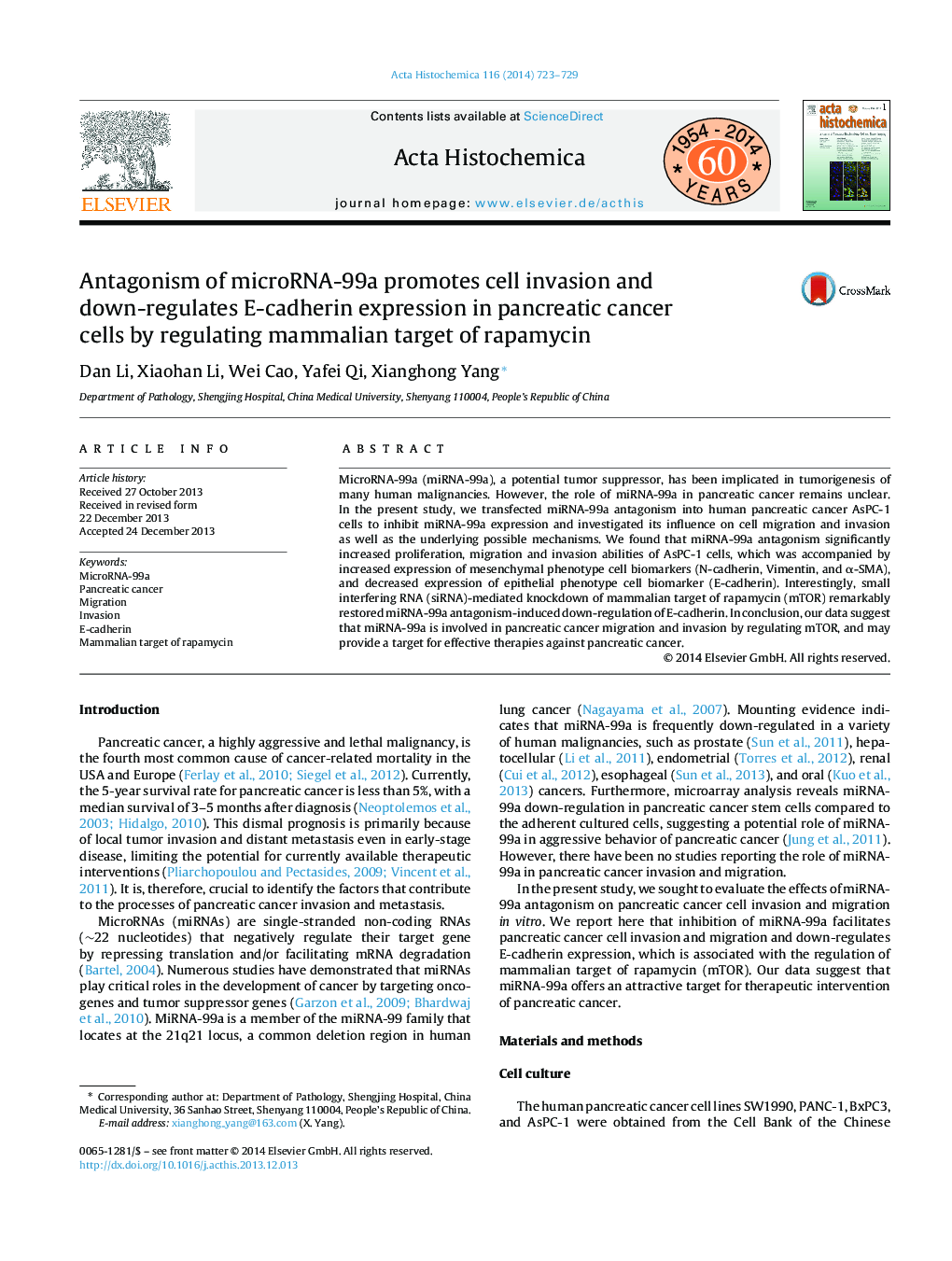| Article ID | Journal | Published Year | Pages | File Type |
|---|---|---|---|---|
| 1923470 | Acta Histochemica | 2014 | 7 Pages |
MicroRNA-99a (miRNA-99a), a potential tumor suppressor, has been implicated in tumorigenesis of many human malignancies. However, the role of miRNA-99a in pancreatic cancer remains unclear. In the present study, we transfected miRNA-99a antagonism into human pancreatic cancer AsPC-1 cells to inhibit miRNA-99a expression and investigated its influence on cell migration and invasion as well as the underlying possible mechanisms. We found that miRNA-99a antagonism significantly increased proliferation, migration and invasion abilities of AsPC-1 cells, which was accompanied by increased expression of mesenchymal phenotype cell biomarkers (N-cadherin, Vimentin, and α-SMA), and decreased expression of epithelial phenotype cell biomarker (E-cadherin). Interestingly, small interfering RNA (siRNA)-mediated knockdown of mammalian target of rapamycin (mTOR) remarkably restored miRNA-99a antagonism-induced down-regulation of E-cadherin. In conclusion, our data suggest that miRNA-99a is involved in pancreatic cancer migration and invasion by regulating mTOR, and may provide a target for effective therapies against pancreatic cancer.
